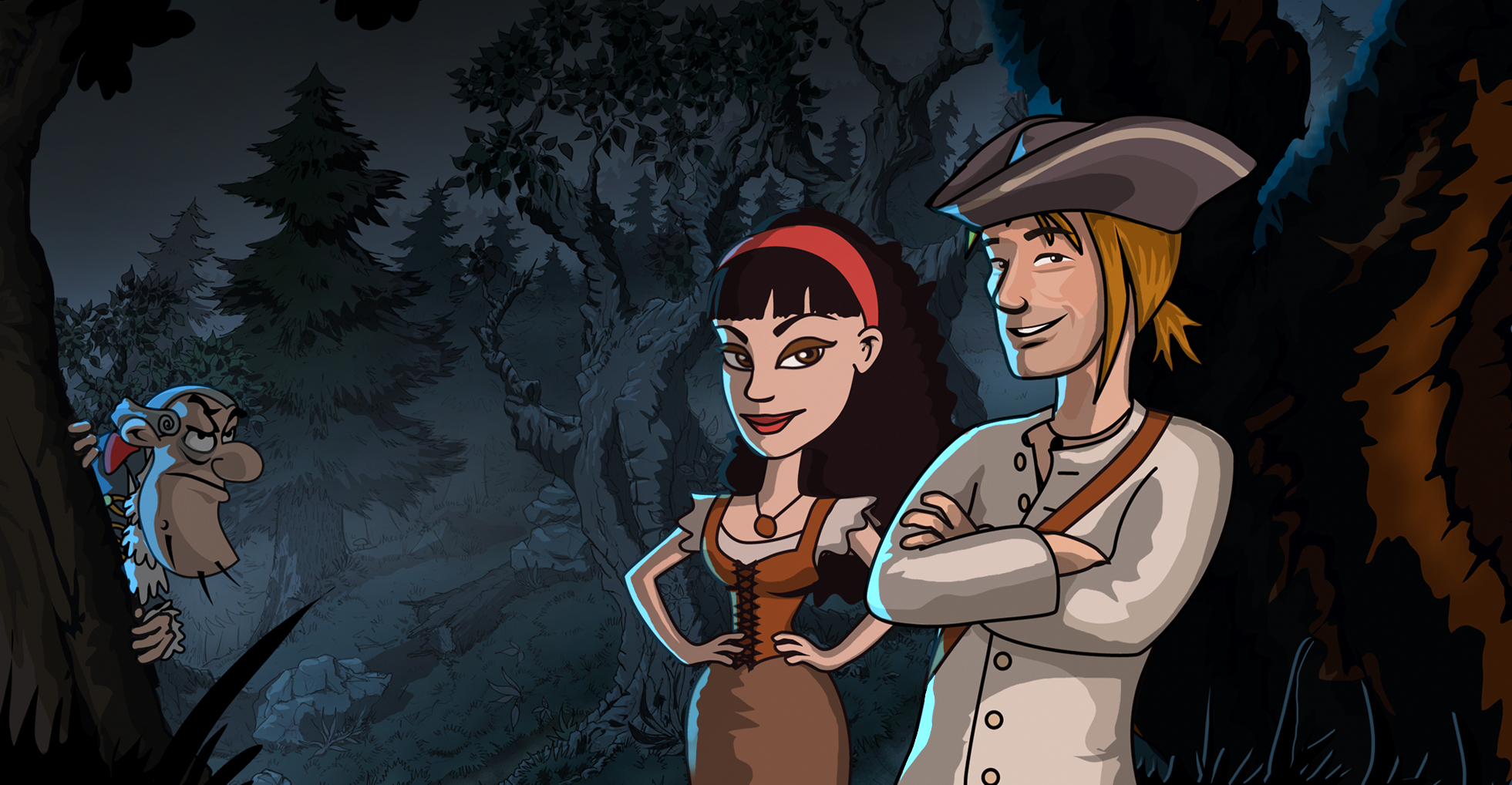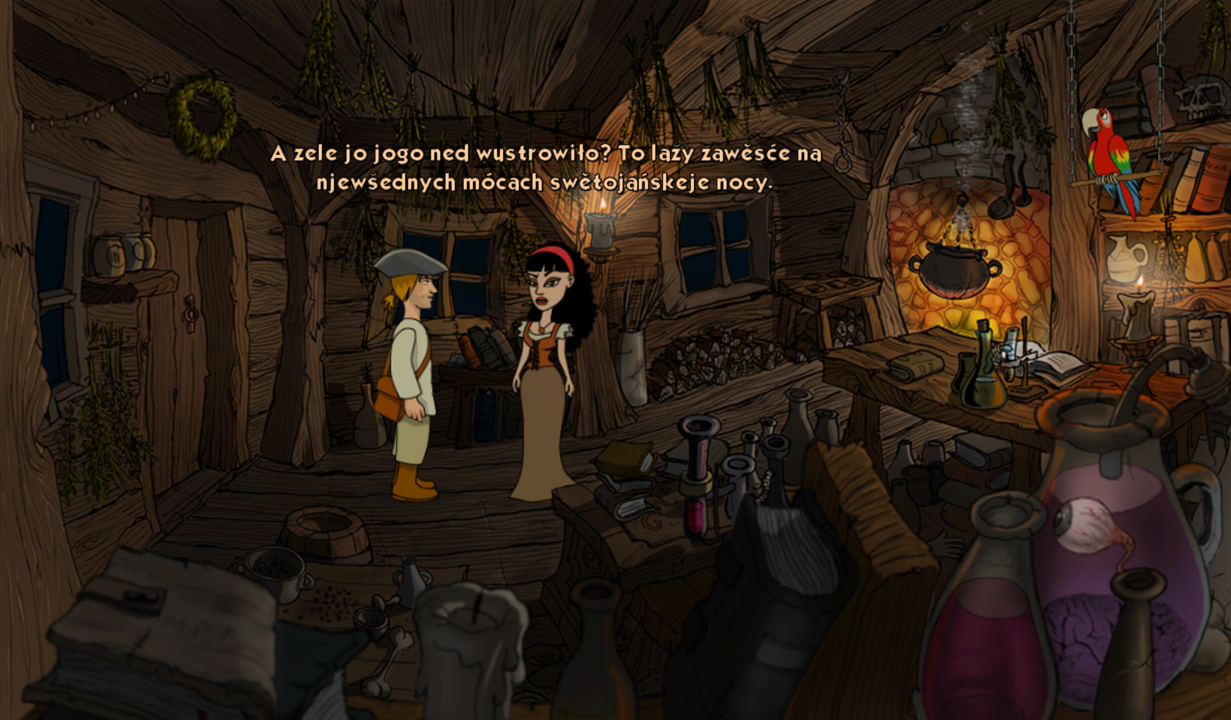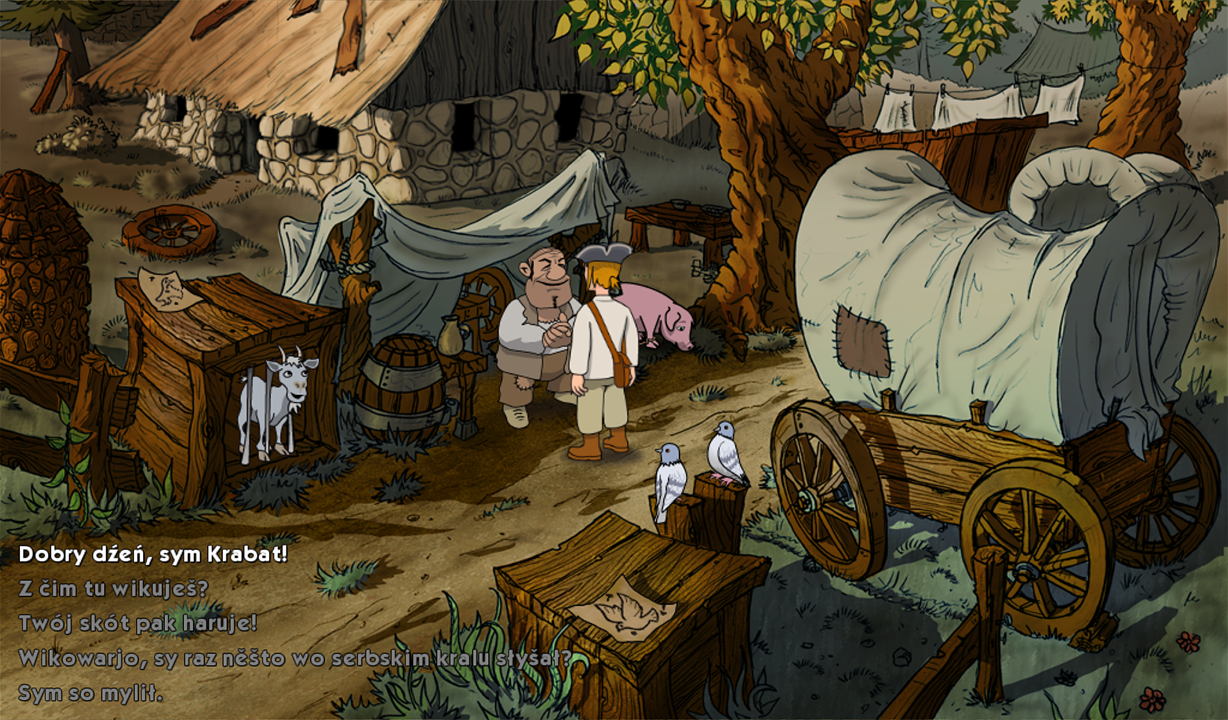
Meet the Innovators: Dr Jörg Hübner on Using Video Games to Promote the Sorbian Language
13.11.2024Driving forces in the digitalisation of the Sorbian language: Dr Jörg Hübner, as the head of the Rapaki project group, along with his colleagues, has developed interactive video games such as “Krabat and the Secret of the Sorbian King”, which creatively spark and foster interest in Sorbian. In this interview, Dr Jörg Hübner, who is also a speaker at the upcoming 8th Forum of European Minority Regions (26-27 November 2024 in San Sebastián/Donostia, Basque Country), talks about his passion for preserving the Sorbian language through digital media, the challenges involved, and the role of video games and technology in the revitalisation of minority languages.

Mr. Hübner, could you start by telling us what you have developed?
As the “Rapaki” project group (Sorbian for “Ravens”), we developed two video games centered around the well-known legendary character Krabat on behalf of the Stiftung für das sorbische Volk (Foundation for the Sorbian People). The first game was released on CD-ROM in 2001 and was simultaneously the first digital game created “by Sorbs for Sorbs”. In 2015, a sequel for Windows PC was released: “Krabat and the Secret of the Sorbian King”. Since 2019, this second game release has been available for mobile devices such as smartphones and tablet PCs in the respective Apple and Google app stores with Sorbian voice output and a German and English text version. The games themselves are comparable to an interactive cartoon, in which players must solve a variety of tasks and puzzles within an exciting storyline.
Who are the Ravens, or Rapaki?
Behind the team name is a group of six very diverse individuals, some of whom have known each other since school. We are not a company in the computer games industry – both games were developed part-time with a lot of enthusiasm and passion in our free time. This dedication is also reflected in the six-year development period of “Krabat and the Secret of the Sorbian King” – including many night shifts.
What motivated you to support the Sorbian language in your project?
Sorbian is our native language. Therefore, it made sense to create a game in this language, especially since there was and still is nothing comparable in Sorbian with this scope and development effort. We greatly enjoyed this pioneering work and, in doing so, made a contribution to digital history. Despite the enormous complexity of the development, it was always our goal to create a high-quality game. This meant that the script, graphics, sound design, voice recordings, and the entire technical implementation had to meet professional standards, even though the work was done in our free time. Numerous positive reviews from players around the world, as well as from industry media, show that we came very close to achieving this self-set goal.

How important are video games for the preservation and promotion of minority languages?
In general, a playful approach to culture, art, history, or language is enjoyable for all age groups and thus serves as an enormous motivational factor. Video games add the element of interactivity, which also engages various senses. All these factors spark curiosity about a language on one hand and can contribute to its revitalisation on the other. Furthermore, the pioneering work involved in such projects often brings new impulses to the development of the language itself. For example, certain technical terms from the IT world posed challenges for our Upper and Lower Sorbian editorial team, particularly during the development of the first Krabat game.
How has interest in the Sorbian language evolved through your project?
In terms of concrete figures, we see global downloads of the game on various platforms. Apart from Germany, countries such as the USA, Brazil, Vietnam, and South Africa are examples where Krabat (with Sorbian voiceover) is being played. The English text version has been particularly helpful in generating this broad interest. On a smaller scale, we also observe how the game brings entire families together in front of the screen to solve puzzles and advance the story collectively.
What role does digitalisation play in the revitalisation of minority languages, in your opinion?
Digitalisation offers immense opportunities as relevant, informative, or entertaining content can reach target audiences and users very quickly, directly, without significant barriers, and with substantial scalability. For example, nearly everyone has a smartphone – a digital, networked communication device that is used universally in daily life.
What can other groups that speak minority languages learn from your projects?
The planning and organisational processes are crucial for managing a project of this scale. We have gained a lot of experience in this area. Additionally, strong, reliable, and trustworthy partners, such as the Foundation for the Sorbian People in our case, are necessary to achieve the goal of releasing a project over such an extended timeline. Six years of development is a long period filled with many ups and downs, requiring the absolute commitment and perseverance of everyone involved.

Further information:
- “Krabat and the Secret of the Sorbian King” available for download on the Apple Store
- “Krabat and the Secret of the Sorbian King” available for download on the Google Play Store
- Visit Rapaki.de to learn more about the work of the Rapaki project group.
- Sorbisch? Na klar.: Online portal offering insights into and topics related to the Sorbian language and culture
COMMUNIQUÉ DE PRESSE
- New secretariat in the Polish parliament supports national and ethnic minorities
- FUEN calls for the inclusion of the Ladin language at the 2026 Winter Olympic Games
- FUEN Urges UN Special Rapporteur to Advocate for a Coherent EU Minority Protection Framework
- FUEN wishes you a peaceful Christmas season, restful days and a bright, hopeful start to the new year!
- FUEN calls on the EU to act over systematic ethnic-based land confiscations in Slovakia
- Women of Minorities conference in Budapest calls for structural change to ensure equal political participation of minority women
- FUEN President Olivia Schubert at UN Forum on Minority Issues in Geneva
- "Laboratory of Peace": 28th Seminar of Slavic Minorities held in European Capital of Culture Gorica/Gorizia
- Equality in Political Participation and Representation: Third “Women of Minorities” Conference to Be Held in Budapest
- FUEN Working Group on Education discusses challenges and future of minority schooling in Europe














